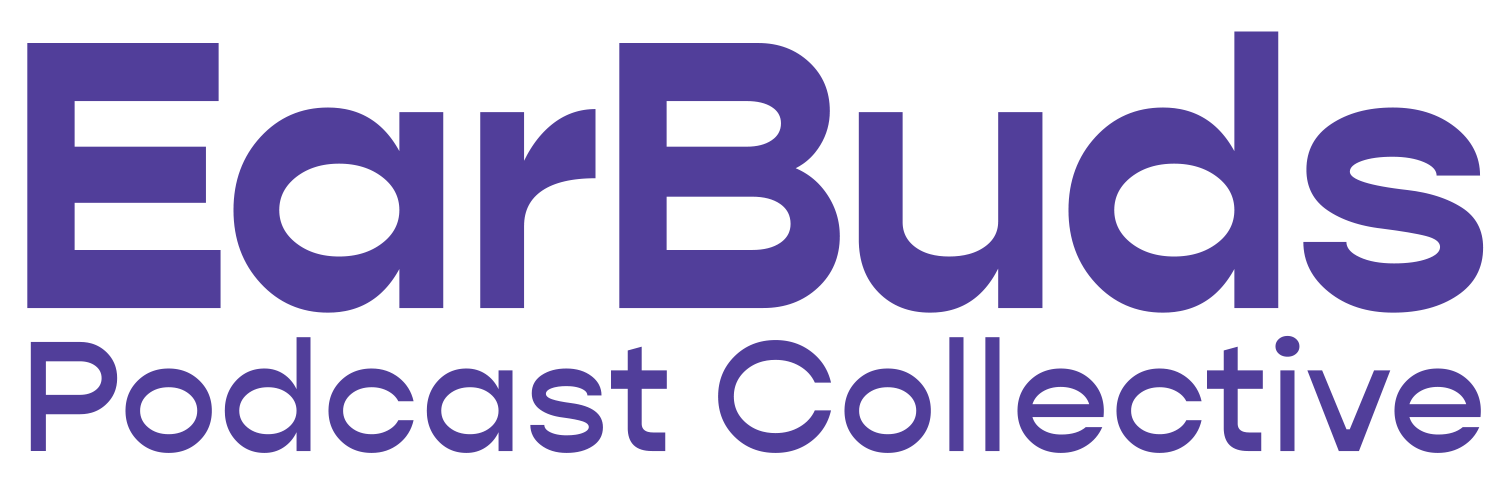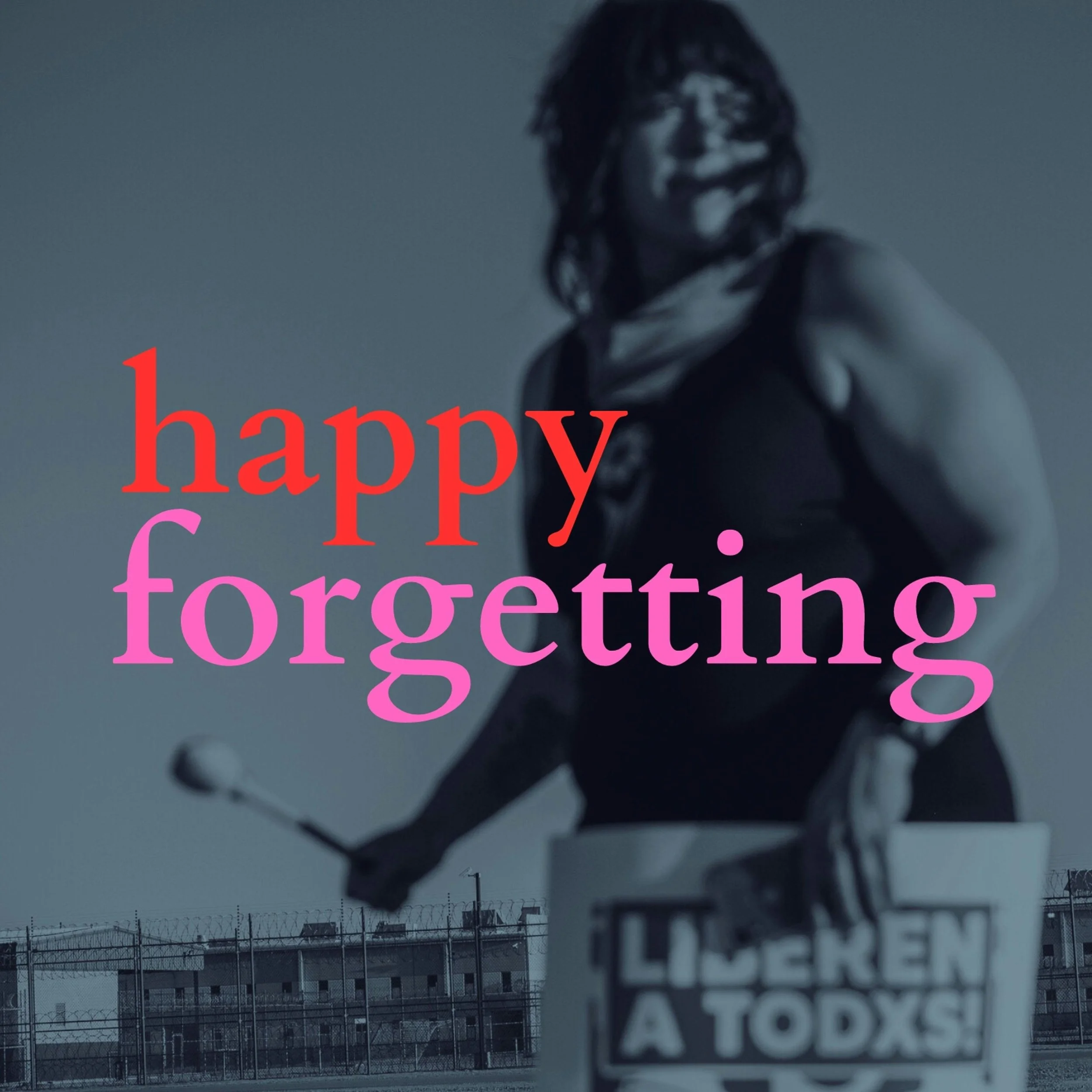Racial Justice Through the Lens of 'Happy Forgetting': An Interview with Ruxandra Guidi
Interview by Andreea Coscai, EarBuds Newsletter & Community Coordinator
Happy Forgetting, an anthology podcast about memory, racial oppression, and fights for liberation, launched November 12. It’s about what we remember, what we forget, what we deny, and what we bury when it comes to racial justice. And why those stories must be retold.
Happy Forgetting is a collection of six personal and opinionated audio essays and documentaries reminding us that progress isn't linear, in part inspired by the ideas of 20th-century French philosopher Paul Ricœur, who argued that there are certain memories which humankind has a duty not to forget — yet has often had the impulse to obscure or erase.
With stories and essays by Pulitzer-winning Yohance Lacour (from You Didn’t See Nothin), John Biewen of Seeing White and Capitalism, Allison Herrera and Adreanna Rodriguez of Audible’s Tribal Justice, Salifu Mack of Gimlet’s Resistance, and Pineapple Street Studios’ Natalie Peart.
You can now listen to the first episode here. And read more about the making of the show here.
Happy Forgetting podcast artwork
Andreea Coscai: What first drew you to the idea of Happy Forgetting and sharing the stories in this particular moment in time? And what is the story behind the title choice?
Ruxandra Guidi: Happy Forgetting as a collection of stories about racial justice has lived in my brain for at least five or seven years, though it didn’t carry that name. I thought it might be a magazine feature, not a podcast. Then a couple of years ago, I heard about the ideas of 20th-century French philosopher Jean Paul Gustave Ricœur, who argued that there are certain memories that humankind has a duty not to forget — yet has often had the impulse to obscure or erase. He’s the one who coined [the term] Happy Forgetting. That really stayed with me, and so I decided it needed to be the framework for the project.
AC: Could you walk us through how you approached selecting the stories in this series?
RG: Once I secured the funding for this project and I knew it could be realized, I decided I didn’t want to do another podcast about racial justice that romanticizes or sanitizes really complex narratives, the kind that we need to hear if we are serious about facing the legacy of racism in this country. So I went straight to the people I knew (or knew of) whose stories about race I’ve found original, outspoken, honest, and probing. I went to them and asked them to brainstorm and invited their ideas and approaches. Each of the episodes is either a product of that brainstorming or it’s a new version of stories they themselves have grappled with over the years.
I’d say that it was equal parts having the freedom to envision this project exactly how I wanted (I got a grant from the Open Society Foundation that gave me so much creative freedom) and finding the partners (like my co-editor and strategy guru Rekha Murthy) who brought thoughtful ideas and approaches into the project. It was an exercise in dreaming big but staying nimble.
AC: What was your thought process in organizing Happy Forgetting into six distinct audio essays?
RG: So once I knew each of the stories/episodes would originate with the writer or producer I was working with, I wanted to hear from a range of places and about various issues. I didn’t want the stories to originate in big cities like New York and Los Angeles, and I didn’t want them all to focus on the impacts of racist discrimination, but [rather] what has happened throughout history in spite of that discrimination. I wanted these to be stories that dig deep but that also travel light, that help us make connections, and get a longer view.
AC: Were there any surprising challenges that came up during production?
RG: Meeting deadlines! That seems harder than ever for so many of us. As independents, we’re hustling to find meaningful work, to find funding, and when it rains, it pours. We’re overworked [and] overstimulated. We did a lot of revision. I’m thankful to Rekha and to the producers for the trial-and-error approach we took to finalizing the stories. It was a ton of work but I hope everyone is really happy with it.
AC: When listeners finish listening to Happy Forgetting, what is the main takeaway or question you hope stays with them?
RG: I hope folks come away feeling like there is no one way to learn about the legacies of slavery or genocide or war in this country. They can be too much to bear. There is a reason why these stories are often forgotten, denied, or buried in the historical record — and that’s exactly why they must be recast. I would also love for listeners to consider a different framework, focused on hope and facts — two building blocks our current era of racial reckoning desperately needs. I think telling complex stories is just one small part of it.

